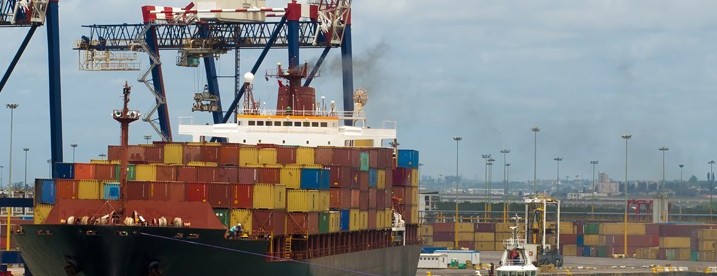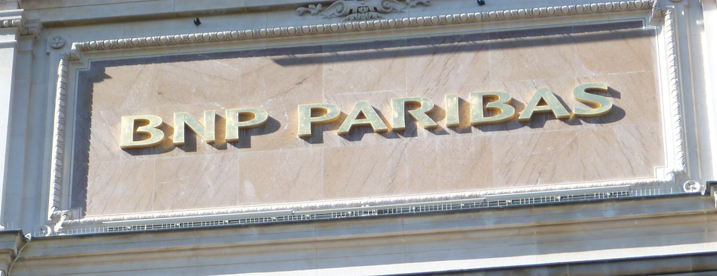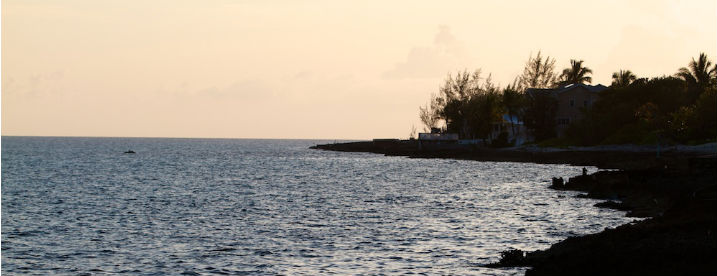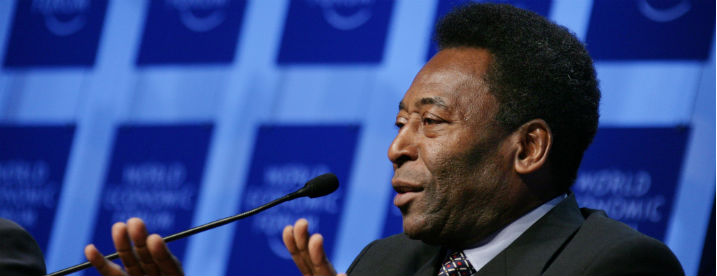By Tom Cardamone, June 16, 2014

GFI Calls for the Adoption of a Sustainable Development Goal (SDG) Aimed Strictly at Halving Illicit Financial Flows from Trade Misinvoicing by 2030
Since the beginning of the year, the UN’s Open Working Group (OWG) has been wrestling with a nearly herculean task: to winnow a set of roughly 200 suggested Post-2015 sustainable development goals (SDGs) down to about a dozen. The process will culminate with the list being presented to the UN General Assembly (UNGA) during its annual meeting in September. The UNGA will then have one year—until the next UNGA meeting—to consider and, perhaps, amend the list. By September 2015, the international community’s roadmap toward sustainable development will be set in stone for the next 15 years. Simply put, there is a lot riding on what the OWG does in the next three months.
The current list of potential OWG recommendations covers the gamut from reductions in corruption to significant improvements in clean water, education and health care. While Global Financial Integrity (GFI) is pleased to see that the OWG has included a target to reduce illicit financial flows (IFFs)—which are estimated at close to $1 trillion annually—we believe the language as currently drafted is flawed.
As written, the IFF target (goal 16.3) is coupled with numerous other issues—including reductions in organized crime, human trafficking, and drug smuggling—making it unwieldy, unmeasurable and, as a result, unachievable. We believe a concise SDG target on IFFs will have a far greater chance of being proposed by the OWG and approved by the General Assembly.
By E.J. Fagan, June 13, 2014

A few weeks ago, we wrote on this blog that New York Regulator Benjamin Lawsky was demanding that top executives at BNP Paribas be fired as part of their settlement deal for violating U.S. sanctions and money laundering rules during settlement negotiations. Today, The Wall Street Journal reported that Lawsky was successful:
BNP Paribas has tentatively agreed to oust a senior adviser at the French bank at the behest of New York’s top financial regulator as part of a proposed settlement of BNP’s alleged violations of U.S. sanctions, according to people familiar with the matter.
Benjamin M. Lawsky, who runs New York’s Department of Financial Services, requested the bank remove Vivien Lévy-Garboua, the people said. Mr. Lévy-Garboua has served as head of compliance and internal controls for BNP in North America and currently acts as an adviser to senior bank officials.
It is pretty typical for the bank’s chief compliance officer to be fired after a scandal like this. News reports have the eventual total at ‘at least a dozen’ executives, so we’ll see if the discipline goes farther up the food chain. BNP has announced the symbolic early retirement of Chief Operating Officer Georges Chodron de Courcel, who was expected to leave at the end of the year. No one should mistake that for real discipline, however.
By Grace Zhao, June 13, 2014

Swiss banks can’t be as secretive today as they were many years ago. The World Won’t Let Them.
For years, secrecy jurisdictions such as Switzerland helped U.S. depositors use their own secrecy laws to avoid U.S. income taxes. Banking secrecy was firmly established in Switzerland in 1934 when it became a criminal offense to reveal a client’s identity. As a result, Swiss banks have helped hide around $2.1 trillion in offshore accounts. Today this is an increasingly unacceptable amount of money to hide away.
Since the 2008 financial crisis, banks in secrecy jurisdictions have faced increasing international pressures to make banking information more transparent. Such banks have been urged to take on the automatic exchange of information on bank accounts.
By Michele Fletcher, June 11, 2014

Boko Haram developed from social unrest, poverty, and a strong disillusionment with the corruption of the Nigerian government. Today, the same factors make Boko Haram lethal.
Nigeria’s rampant corruption has left the nation unequipped to deal with security concerns, especially along porous borders through which Boko Haram receives immense support. A look at one of their videos reveals an immense amount of weaponry that is not only costly, but very difficult to obtain.
Boko Haram is capitalizing on the destitute and weak areas in the north of Nigeria to extract money from civilians, as well as financial opacity to receive funding from international criminal networks, and channel it towards arms acquisition from abroad: one of many examples of the inextricable link between financial concerns and national security.
By Michele Fletcher, June 10, 2014

On Wednesday, representatives from the Senate, European Embassies of Luxembourg, the Netherlands, and anti-corruption NGOs, including GFI’s Tom Cardamone, gathered in the U.S. Senate’s Kennedy Caucus Room to discuss the growing dangers of illicit financial flows in Europe as major contributors to the European financial crisis.
U.S. Senator Jeff Sessions (R-AL) spoke about his experience with Russia’s systematic aggression in the Balkan areas, and advised they take a stronger stance against Russian encroachment. Dependence on American financial and military hegemony in the region is not a sustainable security solution, he added. Sessions, who also served as Attorney General of Alabama, urged that Central and Eastern Europe push for anti-corruption and transparency laws.
I am convinced that prosperous and open societies make the world better. The values of financial integrity are exactly what we need.
All agreed that financial integrity is the linchpin of stability and security. Hon. Becky Norton Dunlop, Vice President of the Heritage Foundation, said:
Ensuring transparency is key to dealing with corruption.
This is not just a Republican issue. This is not just a Democratic issue; this is an issue for all Americans.
The crisis in Crimea was preventable, argued Natasha Srdoc, Chairman of the Adriatic Institute for Public Policy. Regional stability is greatly undermined by Western European banks promoting fraudulent transactions in the Balkans. Had Ukraine formally broken its ties to Russia and joined the EU, it could have deterred Russia from annexing Crimea. Yet joining the EU may also have exposed the corruption schemes of Ukrainian elites, including that of former President Viktor Yanukovych and former PM Pavlo Lazarenko, whose own anonymous shell company was based in Wyoming.
By Grace Zhao, June 6, 2014

Offshore tax havens impact everybody in the United States, raising the individual tax bills of each American citizen. In fact, every U.S. taxpayer had to pay approximately $1,259 extra on their tax bill this year due to lost...
By Grace Zhao, June 5, 2014

Pele’s son, Edinho, has been sentenced to 33 years in jail on money laundering charges.
Edinho, a former professional soccer player, was accused of using his father’s name to run businesses that conducted money laundering. Edinho was linked to drug cartel boss Ronaldo Duarte Barsotti, known as Naldinho, who allegedly controlled a large drug operation in Brazil’s southeast region.
Prosecutors say that Edinho connected the armed and the financial parts of the cartel and operated from the city of Santos, where he worked as a goalkeeping coach. According to a Santos-based newspaper, Naldinho and Edinho were tapped discussing the illicit money transactions by starting a new business.
By E.J. Fagan, June 2, 2014

Reuters has the story. Settlement negotiations are under way between New York and Federal law enforcement and BNP Paribas, to resolve allegations into whether or not the bank evaded U.S. sanctions. Reports have been circulating for a few days now that BNP Paribas could see financial penalties of up to $10 billion and may plead guilty to violating U.S. law.
Benjamin Lawsky, the Superintendent of Financial Services for New York State, is negotiating on behalf of New York. Previous money laundering settlements have resulted in much more modest fines, and little change at the senior level of of the bank’s management. Regulators may have expected banks to choose to fire senior management on their own following billion-dollar settlements in previous cases, but that did not materialize. This time, Lawsky does not want to leave it to chance:
“The details of settlement talks show how regulators are now demanding that bank employees be held personally accountable for their activities.
Lawsky, a former federal prosecutor who has extracted large penalties from other banks such as Standard Chartered Plc and Credit Suisse Group AG, has said he is making personal accountability a focus in his probes.
“If a bank commits a criminal act or if a bank commits serious regulatory violations, someone within that bank did it. The corporation is an inanimate thing,” Lawsky said last month.”
We’ll be monitoring this situation, but here’s a thought: will this rationale be extended to criminal prosecutions? Will Lawsky stop at requiring banks to fire individuals who committed crimes, or will they actually be prosecuted?







